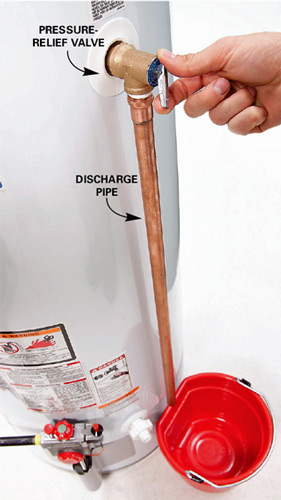Managing the Primary Water Heater Urgencies
Managing the Primary Water Heater Urgencies
Blog Article
What are your beliefs about Common Hot Water Heater Problems?

A hot water heater is just one of one of the most vital standard devices that can be located in a residence. With hot water heater, you do not need to experience the stress and anxiety of heating water by hand each time there is a need to take a bath, do the laundry, or the dishes. However, there is constantly an opportunity that your water heater would certainly act up similar to most mechanical devices.
It is very important to note any kind of little malfunction and also tackle it quickly before points get out of hand. Most times, your water heater starts to malfunction when there is an accumulation of sediments as a result of continuous usage. As a precaution, routine flushing of your hot water heater is recommended to prevent sediment buildup and protect against practical failing.
Common water heater emergency situations and just how to deal with them
Leaking water heater tank.
In this circumstance, you need to turn off your water heating unit, enable it to cool down, and thoroughly look for the resource of the trouble. At times, all you require to do is to tighten a couple of screws or pipe connections in instances of minor leaks. If this does not function and the leak continues, you may need to use the services of a specialist for an ideal substitute.
Varying water temperature.
Your water heater can start creating water of various temperature levels usually ice scalding or chilly hot. There could be a demand to replace either the home heating or the thermostat device of your water heating system.
Insufficient warm water
It might be that the water heating system can not support the warm water demand for your home. You might update your water heater to one with a larger capacity.
Blemished or smelly water
You require to know if the concern is from the water or the tank source when this happens. You are certain that it is your water heater that is faulty if there is no funny smell when you run cool water. The smelly water can be caused by corrosion or the accumulation of microorganisms or debris in the hot water heater tank. Once you observe this, you can try flushing out your storage tank or changing the anode if the trouble continues. The function of the anode is to clean out bacteria from your container. Because the anode rod replacement requires a thorough expertise of your water heater, you will require the aid of a specialist.
Conclusion
Some homeowners overlook little caution and also minor faults in their hot water heater device. This only causes additional damage and also a possible complete failure of your appliance. You ought to deal with your water heater mistakes as soon as they come near stay clear of more expenditures as well as unneeded emergency difficulties.
With water heaters, you don't need to go via the stress and anxiety of home heating water by hand every time there is a requirement to take a bathroom, do the laundry, or the dishes. Your water heating system can begin creating water of different temperatures usually ice cold or hot hot. It may be that the water heater can't sustain the hot water demand for your apartment or condo. If there is no funny scent when you run cool water, after that you are particular that it is your water heating system that is faulty. The stinky water can be caused by rust or the build-up of germs or debris in the water heating system storage tank.
Common Water Heater Issues and What You Should Do
What Type of Water Heater Do You Have?
Before we begin it’s first important that you identify the type of water heater you have on your property. There are two main types of water heaters out there: conventional and high efficiency.
Both of these types of products typically use either gas or electricity to heat power. There are also solar water heaters that use a thermal collector on the roof or yard to heat the water.
While these models are not as common, they can cut heating costs in half. In this article, we will focus on conventional and high efficiency.
How Do My Electric and Gas Water Heater Work?
Though they look similar, electric and gas water heaters work very differently. It’s important to know their basic function because often problems can be specific to the heating source.
In the electric model, a thermostat on the side of the machine detects the temperature of the water in the tank. When the temperature needs to rise electricity flows to a heating element suspended in the water.
Gas models also use a thermostat device — typically with a mercury sensor at the tip and an additional sensor called a thermocouple. The thermocouple detects whether the pilot light is on and controls the flow of gas.
When the thermostat drops below the appropriate level gas is released which becomes ignited by the pilot light. The flame heats the bottom of the water tank which causes hot water to rise and cold water to drop.
This natural circulation continues until the water reaches the desired temperature. Then, the thermostat triggers the gas control valve to shut off the flow of gas.
What Are the Most Common Issues and How Do You Fix Them?
https://happyhiller.com/blog/common-water-heater-issues-and-what-you-should-do/

Do you enjoy reading up on Common Hot Water Heater Problems? Try leaving feedback further down. We would be interested to listen to your opinion about this review. We hope to see you back again later on. Enjoyed our blog? Please share it. Let others find it. Thanks a lot for your time. Visit us again soon.
Top service? Contact. Report this page